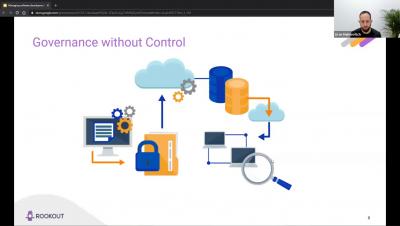Systems | Development | Analytics | API | Testing
Debugging
How to have your cake and eat it too? Managing software development in a high compliance environment
The Bare Necessities of Live Application Debugging
As R&D managers, we want to make sure our developers are happy and efficient. We want to ensure that they have the bare necessities they require to develop the best applications, whether it be the right desktops, the right headset, the right brand of coffee, and as many cookies as our budget can afford.
Dear Data Engineers, stop debugging - start governing
2021 is the year data engineers shift from analytics support to governing data flows. As data becomes an organization's most valuable commodity, it is those with the governance to confidently analyze and act on it that will develop the next big applications.
Relationship Goals: Ignite Your Dev-Product Relationship
The R&D team at every company is made up of a variety of personalities- developers, tech leads, team leads, you name it. The Product team is also quite a diverse group and is usually made up of creative UI/UX designers and product managers. When you throw them together, you get a meaningful relationship that creates magical features for top-notch products.
Developer Tooling for Kubernetes in 2021 - IntelliJ, VSCode, Gitpod, and Lens (Part 3)
Over the last few days, I have been hard at work writing an up to date comparison of Kubernetes tooling (check out the first and second posts if you haven’t already, which cover tools that help you reproduce issues locally). Going through the sprawling Kubernetes ecosystem and curating the knowledge that would be the most interesting to fellow developers and engineering managers has been no small task. That’s why section 3 will cover the heart of cloud-native development: the IDE.
Developer Tooling for Kubernetes in 2021 - Docker, BuildKit, Buildpacks, Jib, and Kaniko (Part 4)
Over the last few blog posts, I have covered critical elements of developer tooling for Kubernetes and how things are looking in 2021. As we continue to dive into that discussion, we must not forget the process of building container images. Of course, most of us create our images by writing Dockerfiles and building them with the Docker engine. And yet, more and more teams are adopting newer alternatives.
How to Debug Your Site Performance With Chrome
It’s now more than 30 years since the first website was born. Its purpose, you ask? To provide information about the World Wide Web, of course. In the three decades that have elapsed since then, we’ve created around 6 billion more websites. Some, like that inaugural site about the internet itself, are devoted to providing information. Others allow us to buy and sell products. Others give us access to photos, videos and other forms of media.
Developer Tooling for Kubernetes in 2021 - Skaffold, Tilt, and Garden (Part 2)
If you have been keeping track, I recently started a series of blog posts about the state of developer tooling in the Kubernetes ecosystem in 2021. The first blog post covered the topic of defining Kubernetes applications, i.e., how you go about declaring, packaging, customizing, and deploying them. You can check out that up to date comparison between category leaders Helm and Kustomize right here.
Surviving the Disaster: How to Identify Bugs Immediately and Get Back on Track with Rookout & Codefresh
As all developers know, when building software things don’t always go as planned. In fact, most of the time they don’t. With today’s modern distributed architectures it’s more important than ever to have the proper tools in your toolbelt. This allows us to automate as much of the software delivery lifecycle as possible and then be able to immediately triage issues when they arise.











